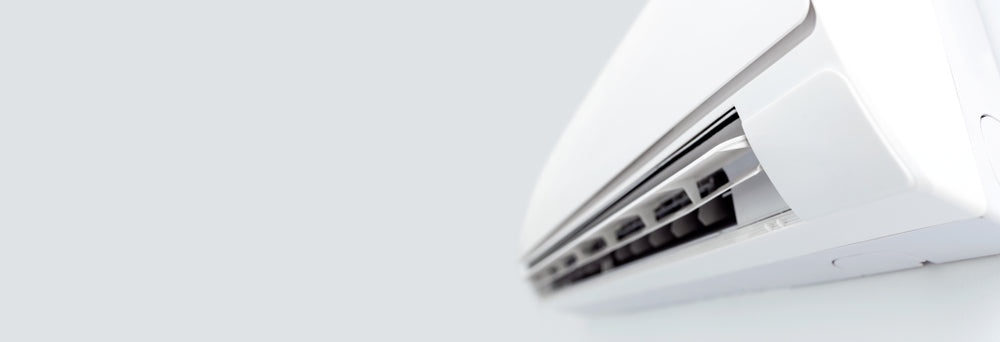
In the sweltering heat of summer, keeping our homes cool becomes a top priority for comfort and well-being. When it comes to cooling options, two popular choices are electric coolers and air conditioners.
Each offers distinct advantages and considerations depending on your needs and preferences. Let's explore the differences between these cooling solutions to help you make an informed decision for your home.
Understanding Electric Coolers
Electric coolers are versatile devices designed to lower temperatures through various mechanisms:
Types of Electric Coolers: There are two main types of electric coolers:
- Evaporative Coolers: Also known as swamp coolers, these devices cool the air through water evaporation, making them ideal for dry climates.
- Thermoelectric Coolers: These coolers use the Peltier effect to transfer heat, suitable for smaller spaces and offering portability.
Benefits and Limitations: Electric coolers are energy-efficient and environmentally friendly, using less electricity than air conditioners. They are also portable and easy to install, making them ideal for apartments or small homes.
However, their effectiveness can be limited in humid climates and larger living areas.
Exploring Air Conditioners
Air conditioners are robust cooling systems designed to regulate indoor temperatures effectively:
Types of Air Conditioners: Air conditioners come in various types to suit different needs:
- Central Air Conditioning: Provides whole-house cooling through ductwork.
- Window Air Conditioners: Installed in windows to cool individual rooms.
- Portable Air Conditioners: Offers flexibility by moving from room to room, requiring venting through a window or wall.
Advantages and Disadvantages: Air conditioners provide powerful cooling capabilities, making them ideal for large spaces and humid climates. They offer precise temperature control and can filter indoor air for improved air quality.
However, air conditioners consume more energy than electric coolers and may require professional installation for central or window units.
Key Differences and Considerations
Energy Efficiency: Electric coolers typically consume less electricity than air conditioners, making them a cost-effective option for long-term use. Air conditioners, while more powerful, can lead to higher energy bills due to their cooling capacity and compressor operation.
Cooling Effectiveness: Air conditioners cool air quickly and maintain consistent temperatures, ideal for extreme heat conditions and larger homes. Electric coolers provide gradual cooling through evaporation or thermoelectric processes, suitable for smaller spaces or dry climates.
Cost Considerations: Electric coolers generally have lower upfront costs and operational expenses compared to air conditioners, which may require initial investment in installation and maintenance.
Suitability for Different Home Environments
Best Uses for Electric Coolers: Ideal for small apartments, offices, or dry climates where humidity levels are low. They are portable and easy to use, making them suitable for temporary cooling solutions.
Best Uses for Air Conditioners: Recommended for larger homes, rooms with high humidity levels, or regions experiencing extreme heat. Air conditioners provide powerful cooling and are capable of maintaining comfortable indoor temperatures.
Factors to Consider: When choosing between electric coolers and air conditioners, consider your home size, climate conditions, energy efficiency goals, and budget constraints.
Environmental Impact and Sustainability
Environmental Considerations: Air conditioners can contribute to greenhouse gas emissions due to electricity consumption, while electric coolers generally have a lower environmental impact. Look for eco-friendly features in both options, such as energy-efficient ratings or recycled materials.
Sustainable Options: Some modern air conditioners and electric coolers incorporate sustainable practices, such as energy-saving modes, eco-friendly refrigerants, and recyclable components. These features help reduce the environmental footprint while providing efficient cooling solutions.
Tips for Sustainability: Optimize cooling efficiency by using programmable thermostats, maintaining regular maintenance, and considering natural cooling methods like shading and ventilation.
Maintenance Tips for Electric Coolers and Air Conditioners
Electric Coolers: Electric coolers, particularly evaporative types, require regular maintenance to function optimally:
- Clean Water Tanks: Regularly clean and disinfect the water tank to prevent bacterial growth and ensure clean air circulation.
- Replace Evaporative Pads: Check and replace evaporative cooling pads according to manufacturer recommendations to maintain cooling efficiency.
- Check Water Supply: Inspect water supply lines for leaks or blockages that could affect the cooler's performance. Ensure proper water flow to maintain effective cooling.
Air Conditioners: Air conditioners need periodic maintenance to maintain cooling efficiency and indoor air quality:
- Clean or Replace Air Filters: Clean or replace air filters monthly to prevent dust and debris buildup, which can reduce airflow and strain the system.
- Inspect Ducts and Vents: Regularly inspect ductwork and vents for blockages or leaks that could hinder airflow or cause inefficiencies.
- Professional Maintenance: Schedule professional maintenance annually to check refrigerant levels, clean coils, and ensure all components are functioning properly. Professional servicing can prolong the lifespan of your air conditioner and optimize its performance.
Conclusion
Choosing between electric coolers and air conditioners depends on your specific cooling needs, budget, and environmental considerations. Electric coolers offer portable and energy-efficient cooling solutions suitable for smaller spaces and dry climates, while air conditioners provide powerful cooling capabilities for larger homes and humid environments.
By understanding the differences and benefits of each option, you can make a well-informed decision to keep your home cool and comfortable throughout the hot summer months. Explore the available options and find the cooling solution that best fits your lifestyle and home environment.








